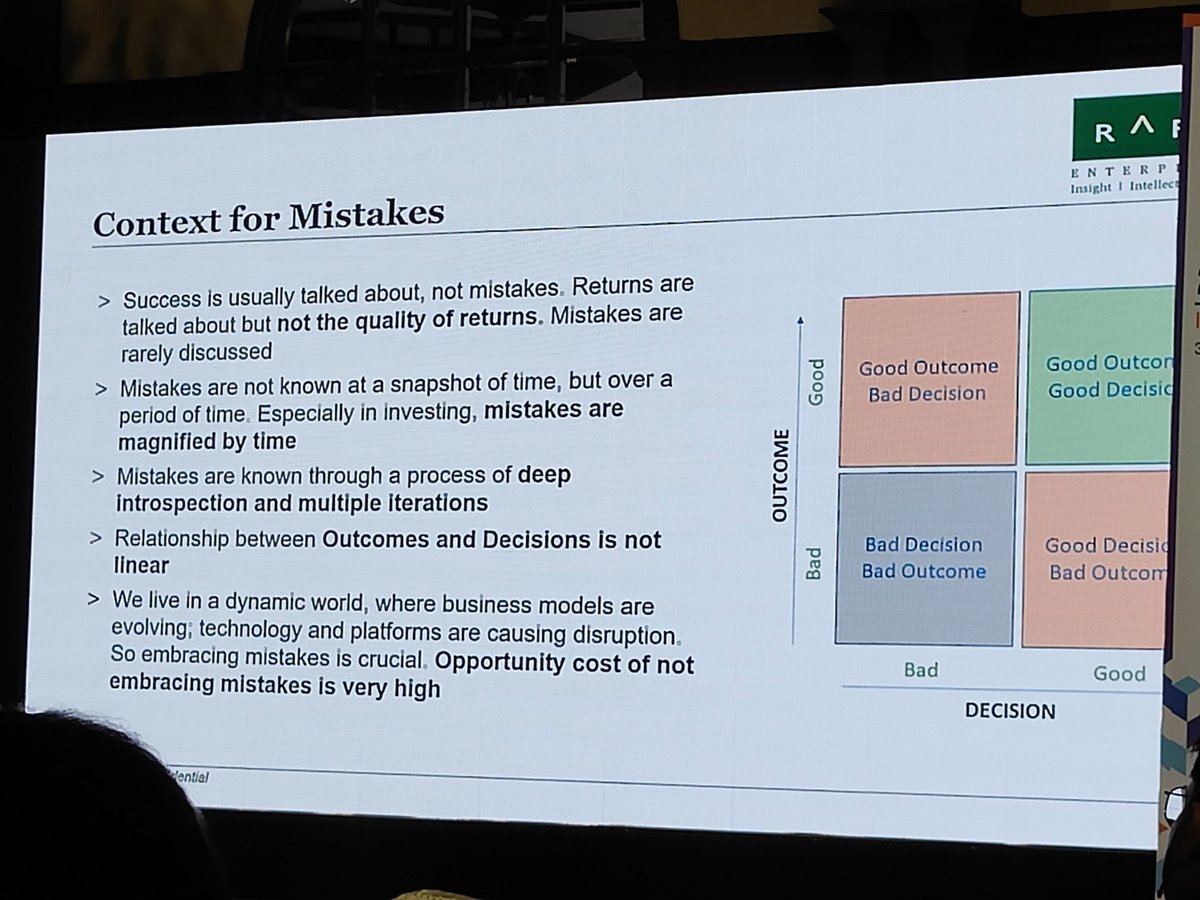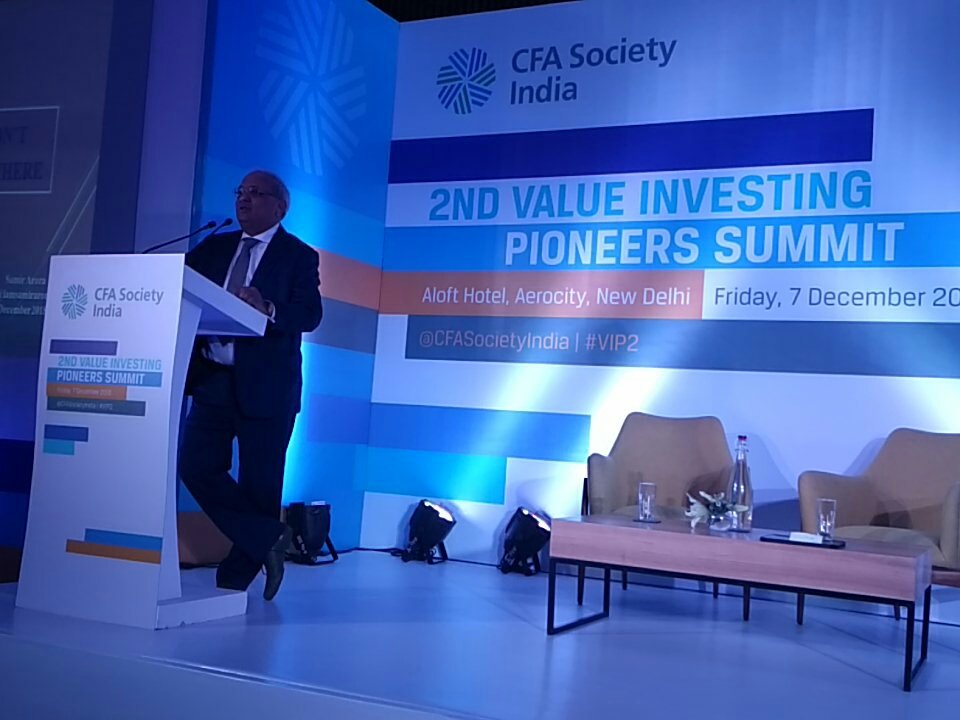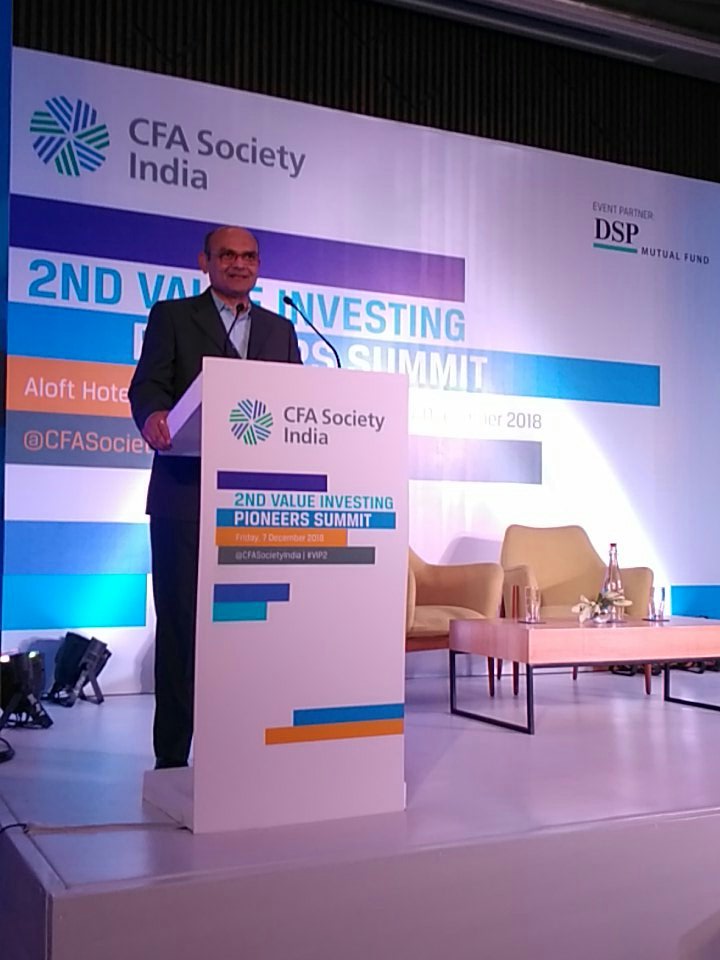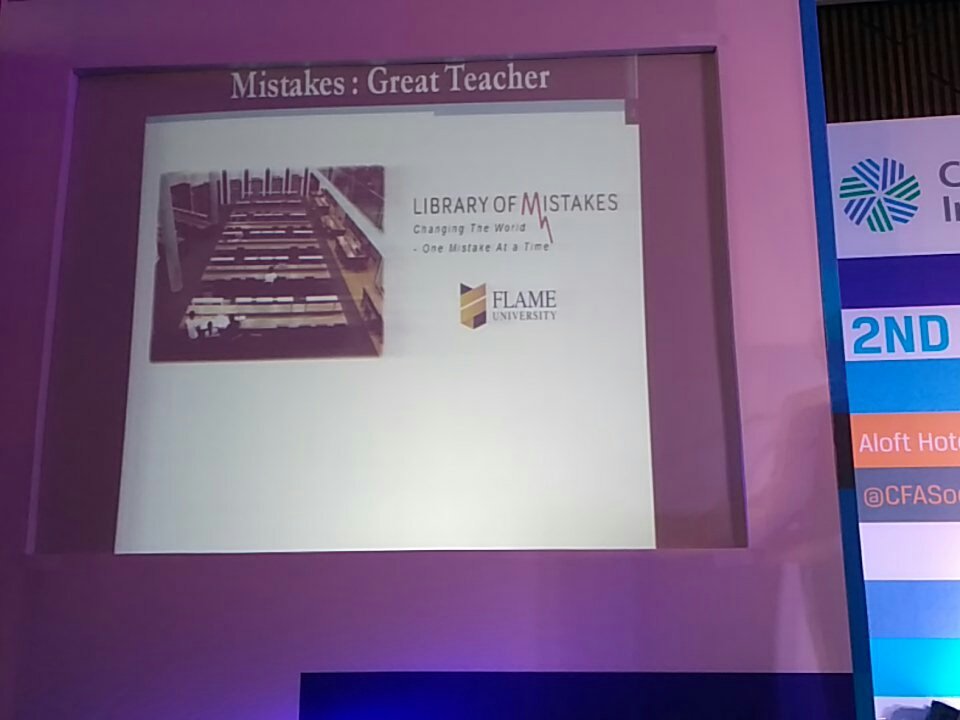
We start with the last session of the day at #MAW - Business Builder Approach to Investing - with Amit Dalmia, Senior Managing Director @blackstone, moderated by Navneet Munot, MD & CEO, @hdfcmf 

India's PE landscape has only improved. India couldn't be in a better place to attract funding. It's the fastest growing major economy for PE and VC Investing. 

Referring to @Lakshmi1876's slides on India's macroeconomic strength in her session at #MAW - Amit adds that the demographic dividend in India is very strong, and is very attractive from a global investor community point of view.
Key trends and challenges in the Indian PE landscape. Indian markets are continuously becoming more mature and accepting of PE exits, enabling confidence in PE investments. 

Valuations may have corrected / softened for the medium term. Conversations and business focus have moved from growth to profitability and longevity.
Foundation for a business builder approach: Larger, Fewer, Control deals. Per year investment is just 2-3 companies. Why larger? Effort on a US$500mn investment is the same as a US$2bn deal. Quality of governance has to be very strong. Controlling stake is important to do that. 

Having a great team is very important. Instead of throwing more resources at the problem, they keep a small team size - which works with immense focus. 

Sector selection is important. In a sector with poor economics, even a great management can't create a good investment outcome. Key metrics: Size of the pond, ability to grow consistently, quality of earnings, and long term differentiators. 

Each sector has mega themes at play. One needs to identify areas where one has a right to win, where one has reasons to be excited about. Important to be "Inch Wide and Mile Deep"
Sectors they're bullish on and themes they wish to play:
Sectors they're bullish on and themes they wish to play:

One needs to develop conviction with the right diligence. Use sector contacts to understand the quality of business better. This will also help in sourcing the right deals that are exclusive, and not auctions where prices are herd-driven.
Special situations could be a very interesting area - such as good assets with distressed shareholders, and good businesses hit with temporary disruptions. The travel industry was an example of the latter.
To summarise investment process: Develop the right sector conviction, reduce variables to track, quality diligence, be market-active, and importantly - create an upside case but don't bake it in your valuations!
How does one go about creating value? Not by being in the cockpit, but by providing guidance from the watchtower. 

Management is the biggest differentiator, and combined with the right performance management and incentive plan can create wonders.
Driving value, continued: Drive growth and operational excellence with the right strategic planning and execution. Leverage scale using global best practices and cross portfolio synergies.
Process for exiting. It is very important to leave value on the table to be a sustainable player in the ecosystem. 

Time for the Q&A section with Mr. Navneet Munot, @hdfcmf 

Q: Is the sector selection process global?
A: While global expertise is leveraged, Indian markets are very different with different structures and opportunities.
A: While global expertise is leveraged, Indian markets are very different with different structures and opportunities.
Q: How do you see India in the global context?
A: From a PE perspective, there's a cautious approach. Dry powder is more than 3 times today, and the deal momentum has slowed. India is a global favorite presently.
A: From a PE perspective, there's a cautious approach. Dry powder is more than 3 times today, and the deal momentum has slowed. India is a global favorite presently.
Demonstrated exits are adding to the conviction of the ability to find good deals.
While the VC and growth capital could see some slowing down, PE investment could see continuance of very high growth.
While the VC and growth capital could see some slowing down, PE investment could see continuance of very high growth.
Q: Management is the biggest differentiator - some more on it please.
A: We have seen across our investing past that management is key in creating business differences. While hiring is difficult, finding the right fitment for them and the character of a person is very important
A: We have seen across our investing past that management is key in creating business differences. While hiring is difficult, finding the right fitment for them and the character of a person is very important
Management is the #1 priority, and they have learnt from mistakes in the past. Hiring 9s and 10s is important, and then groom them and build teams with high camaraderie.
Q: Building a great career while having a great profile is something you've achieved. Your comments?
A: One needs to develop the right EQ along with temperament. Keep your head down and keep working.
A: One needs to develop the right EQ along with temperament. Keep your head down and keep working.
Q: Valuation process - hows it different in private markets?
A: While most models are standard, it's very important here to not rely on current multiples. Important to take a longer term view.
A: While most models are standard, it's very important here to not rely on current multiples. Important to take a longer term view.
Audience Q: Is a PE exit the sign of value being fully juiced out?
A: we monetise some portions in IPOs and feel happy leaving value on the table - we are long term players and building credibility as a credible seller is important to us.
A: we monetise some portions in IPOs and feel happy leaving value on the table - we are long term players and building credibility as a credible seller is important to us.
Q: Is it LP driven for you, or is it part of the investment process?
A: All stakeholders need it - the market, your customers, employees. We use ESG to create differentiators to win more business.
A: All stakeholders need it - the market, your customers, employees. We use ESG to create differentiators to win more business.
Q: How do you build the right culture in teams, especially ones with all 9s and 10s!
A: I think the credit here goes to portfolio CEOs! Being right at the hiring stage in terms of cultural compatibility is important. Smartest people with lower EQ could be disadvantageous.
A: I think the credit here goes to portfolio CEOs! Being right at the hiring stage in terms of cultural compatibility is important. Smartest people with lower EQ could be disadvantageous.
Q: How do you keep up with your fitness pursuits in a demanding career.
A: One must treat their career like a marathon as well, and consistency in effort is very important. Helps you develop the ability to deliver consistently, adapt easily, and build temperament.
A: One must treat their career like a marathon as well, and consistency in effort is very important. Helps you develop the ability to deliver consistently, adapt easily, and build temperament.
• • •
Missing some Tweet in this thread? You can try to
force a refresh














